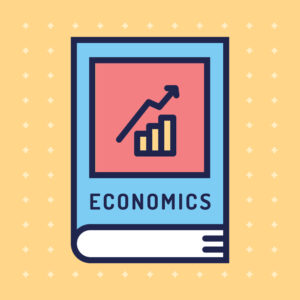Econ 101 Lessons from Highway 61 Revisited
A year ago, I wrote about twin examples offered by one of Minnesota’s Twin Cities, St. Paul, of the principles of Econ 101 in action.
The Saint Paul City Council passed a minimum wage ordinance in 2018 that, from January 2020, would raise the city’s minimum wage by stages to $15 an hour for all firms by 2028. Research found that:
A nice illustration of a price floor in action.
St. Paulites had also voted to enact one of the strictest rent control measures in the United States, capping annual rent increases at 3% with no allowance for inflation or exemption for newly built properties. And:
An equally nice illustration of a price ceiling in action.
But St. Paul’s Twin, Minneapolis, is also offering itself as an economic policy laboratory and it is also providing examples of price floors and ceilings at work with minimum wage hikes and rent controls.
The Federal Reserve Bank of Minneapolis recently released its latest reports on the consequences of the Twin Cities’ minimum wage hikes. For St. Paul, it found that, by 2021 Q4, the hike led to:
In the retail industry, the hike reduced jobs by 23%.
Across the Mississippi in Minneapolis, the study found that, by 2021 Q4, the minimum wage hike led to:
In the retail industry specifically, the hike reduced jobs by 28%, hours worked by 20%, and earnings by 13%.

In both cases, hikes in the minimum wage, a price floor, made labor more expensive and employers responded by buying less of it, just as Econ 101 would suggest.
Minneapolitans also voted for rent control measures in November 2021, but the city has dragged its feet implementing it. A new report, commissioned by the city itself, indicates why. It found that:
It warned that:
If a rent stabilization policy was adopted in Minneapolis:
- Some existing renters could benefit from increased housing stability due to the certainty of the limit on future rent increases.
- Renters may in fact face greater housing instability due to higher rent increases than they otherwise would have experienced, as property owners could begin raising rents to the maximum amount allowed.
- Renters may experience diminished housing quality, as a rent stabilization policy could disincentivize property maintenance and improvements.
- There could be a significant decline in the creation and preservation of rental housing units in Minneapolis.
Ultimately, “The costs and detrimental impacts of a rent stabilization policy would outweigh any potential benefits in addressing renter cost-burden.”
All of this is as you’d expect from Econ 101. A price ceiling increases demand and reduces supply exacerbating the very shortages it is often intended to fix.
Minnesota is setting itself up as an experiment in expanded government: “Minnesota Democrats plan to grow state government to historic size,” the Pioneer Press reported recently. Its government is proposing to hike spending and, even with a forecast budget surplus of $18 billion dollars, raise taxes too. NBC News recently labelled the state “a laboratory for how to effectively use that power to achieve progressive policy priorities.” Nowhere is that truer than in the Twin Cities of Minneapolis and St. Paul. The results speak for themselves.
John Phelan is an Economist at Center of the American Experiment.

